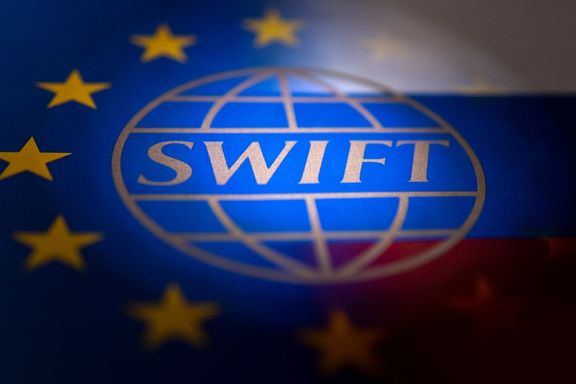Iran's Case Can Show What Sanctions Can Do To Russia

It is hard to predict the impact of Western sanctions on Russia, but there is the example of Iran and its myriad of economic problems triggered by sanctions.

It is hard to predict the impact of Western sanctions on Russia, but there is the example of Iran and its myriad of economic problems triggered by sanctions.
Over the weekend, Western countries moved to expand economic sanctions against Russia that threw tens of thousands of troops with tanks and air power to conquer Ukraine. President Vladimir Putin’s decision was the most serious challenge to Western security perhaps since World War II.
Finally, Western countries agreed to remove several Russian banks from the international banking system SWIFT, an action that was also taken against Iran in the past decade.
While, unlike the Iran case, Russian oil and gas have not been sanctioned, experts agree that banking and other sanctions will impact its energy exports and revenues Moscow depends on.
Western sanctions threaten to substantially weaken the Russian ruble, as well as the health of its banks. They could also trigger high double-digit inflation, a sharp recession and serious unemployment, with their inevitable political consequences. These in combination could turn into a systemic affliction that would be hard for Russia to shake off even after the crisis end in some sort of positive resolution.
Iran’s example is there to see. Although international sanctions were lifted in early 2016 after a nuclear deal was signed and Iran was able to take a deep breath, its international trade and banking were far from normal.

Iranians complained for two years that foreign companies were reluctant to deal with them, banks would not easily cooperate to facilitate trade deals and even ordinary Iranian expats encountered problems in other countries to extend visas, open bank accounts and receive credit lines.
Residual sanctions syndrome
This is what we can call ‘residual sanctions syndrome’. One of the most important aftereffects of international sanctions is loss of credit worthiness in the world financial system, even after sanctions are formally lifted. Institutions are extremely cautious to lend money and most importantly foreign investors avoid a country that experienced Western sanctions.
Again, Iran is a good example. The two-year period from 2016-2018 when most economic sanctions were removed, Iran had a hard time to get major deals and joint ventures. While the country needed tens of billions of dollars in investment, it was able to secure just a few billion dollars.
When Donald Trump became president and criticized the nuclear agreement in 2017, the few investors, such as the French energy giant Total, which had carefully tip-toed into Iran after sanctions had been removed, immediately slowed down investment and eventually withdrew when the US began reimposing sanctions.
Economic sanctions in today’s global economy are also complicated matters and even after they are removed many financial and business actors are not sure what provisions and regulations have been relaxed and how to make decisions without risking legal complications.
One aspect of the residual sanctions syndrome is the persistence of the underlying political factor(s) that led to a sanctions’ regime in the first place. Iran did come to an agreement with the United States and its allies over limiting its nuclear program, but it was still perceived as a pariah state because of its anti-Western foreign policy and its continued overt and covert destabilizing actions in the Middle East.
The psychological aftereffects of sanctions tend to be strong if the sanctioned party is expected to re-exhibit erratic behavior. Would-be investors and trade partners know that there is an inherent risk of doing business with an actor that was once pressured by sanctions and is likely to repeat undesirable actions either driven by aggressive impulses, ideology or militarism.
Even if Putin resolves the Ukraine issue with an agreement and the immediate causes of sanctions are resolved, Russia will lose trustworthiness with business decision makers who simply cannot be sure when the next crisis will come.